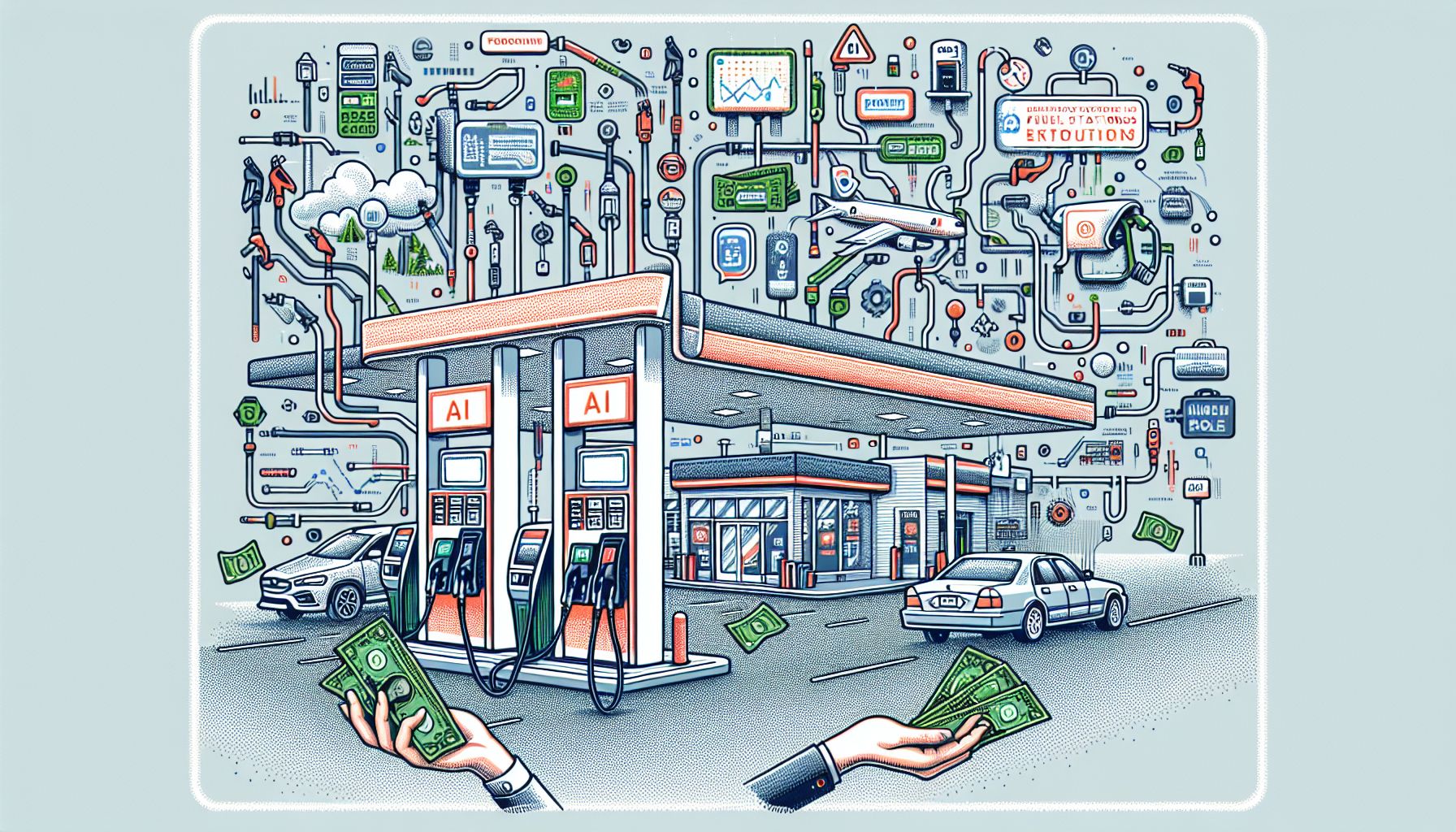AI Revolution Reshapes Fuel Station Market in 2024

Global, Thursday, 14 November 2024.
The gasoline stations market is undergoing a significant transformation, driven by AI-powered technologies. These innovations are enhancing service efficiency and reshaping customer experiences. Industry forecasts predict substantial changes by 2033, with smart infrastructure and digital transactions leading the way.
Market Growth and Technological Advancements
The gasoline stations market is projected to grow from $2,566.61 billion in 2023 to $2,722.31 billion in 2024, marking a compound annual growth rate (CAGR) of 6.1%[1]. By 2028, the market is expected to reach $3,347.09 billion, reflecting a CAGR of 5.3%[1]. This growth is largely attributed to the widespread adoption of artificial intelligence and machine learning technologies, which are driving significant advancements in smart infrastructure and digital transactions. Such technologies are not only enhancing the efficiency of service delivery but also revolutionizing the way customers interact with fuel stations.
Impact of AI and Digital Transactions
AI-powered systems are streamlining operations at gas stations by optimizing fuel distribution, managing inventory, and providing personalized customer experiences. Major companies like PJSC Lukoil, PTT Public Company Limited, and Exxon Mobil are at the forefront of integrating these technologies to enhance operational efficiency and customer satisfaction[1]. The shift toward digital transactions, including mobile payments and automated checkouts, is further transforming the customer experience, making it faster and more seamless.
Regional Trends and Electric Vehicle Influence
In 2023, Asia-Pacific emerged as the largest region in the gasoline stations market, with significant contributions from Western Europe, North America, and the Middle East[1]. The rise of electric vehicles (EVs) presents both challenges and opportunities for gasoline stations. Many stations are beginning to incorporate EV charging systems, aligning with the growing demand for sustainable energy solutions. This trend is particularly relevant as the availability of EV chargers becomes a critical factor for consumers considering the switch from traditional fuel vehicles[2].
Future Outlook and Industry Challenges
Looking ahead to 2033, the gasoline stations market is expected to undergo further transformation as AI technology continues to evolve. The integration of smart infrastructure and the expansion of digital payment systems will likely drive further growth and efficiency. However, the industry faces challenges, including the need to adapt to fluctuating fuel prices and regulatory changes. As big-box retailers like Costco and Walmart continue to capture market share by offering competitive fuel pricing, traditional gas stations are compelled to innovate and diversify their service offerings to remain competitive[4].